Editor’s Note: See the originally published article on Medium at: https://dianehearus.medium.com/fixing-family-homelessness-af34abbafa14
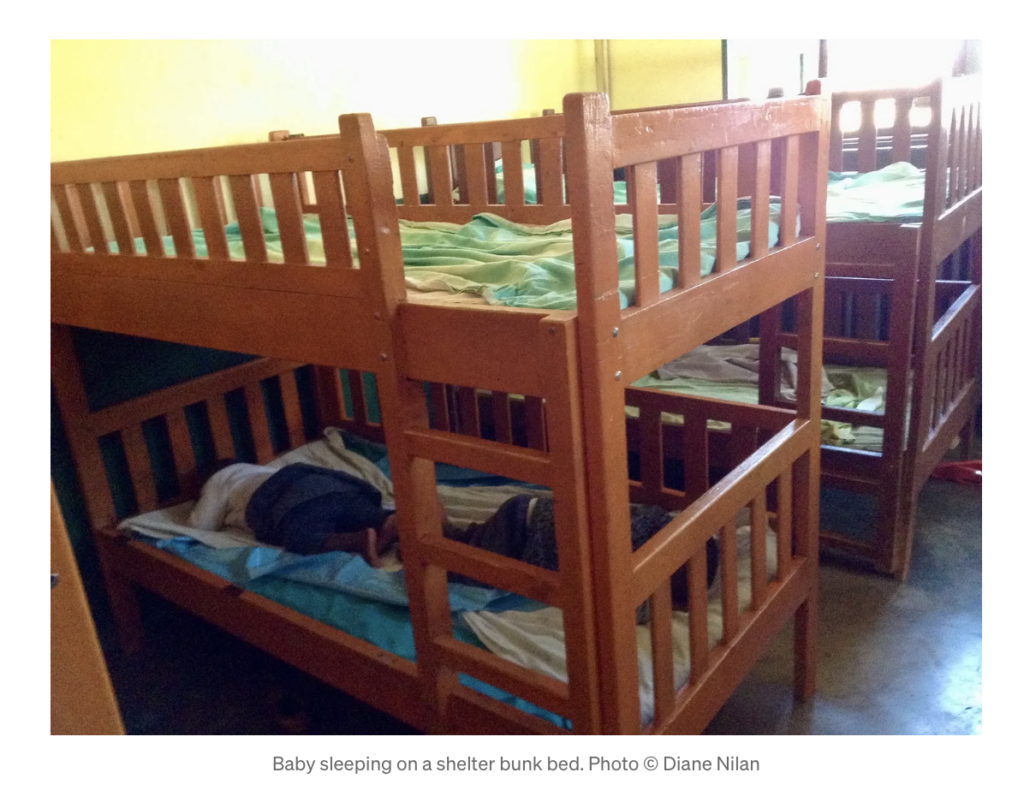
Let me make a blanket statement about family homelessness: Parents (often single moms) share two attributes: one keeps them from climbing out of the homelessness vortex, the other is often ignored and sabotages stability.
I must also point out that systemic causes of family homelessness — primarily the dreadful lack of affordable housing and the plethora of economic dysfunctions — are behind this record breaking crisis. To be clear — it’s not the families’ fault. But they’re left with the consequences of our nation’s abysmal disregard of their basic human needs. And the systems that could help have not only turned a blind eye to this crisis, but they relentlessly punish families.
Interviewing parents in various homeless situations over the past two decades for HEAR US Inc., I have heard, observed and filmed and written about what seldom, if ever, gets attention. At the root of their plight, no matter the surface causes, are two overlooked considerations.
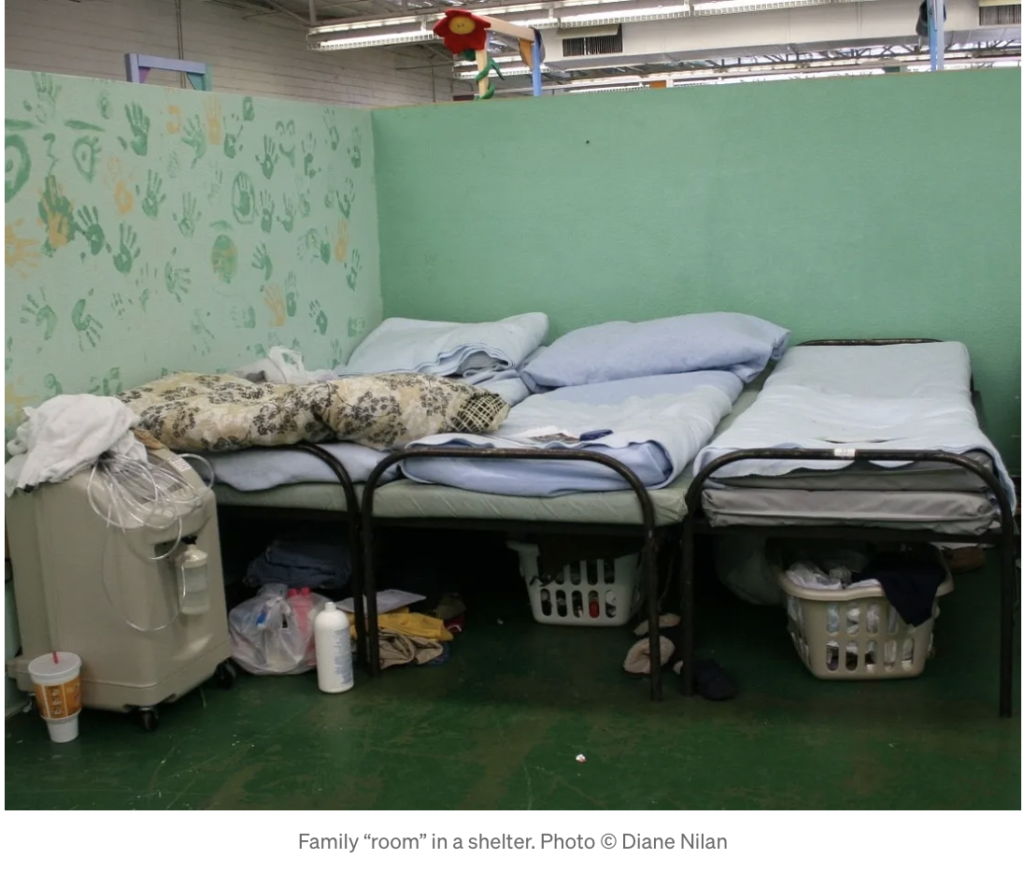
One Thing We All Need
Sleep.
The parents (and their kids) are exhausted. They don’t sleep well, enough, or in some cases at all. If they are lucky enough to lay down to rest, the places are often not conducive to sleep.
Noise. Insecure environments. Irregular schedules. Uncomfortable settings. Predators. Stress. Hunger. Health issues. Worries about family members. Shelter rules. Time limits. All of these and more disturb the essential daily period devoted to rest.
Even moms who have escaped homelessness, like the 3 Melissas* I’ve been focused on lately don’t sleep well. Understandable when I listen to them relate what they’re facing. And they’re not alone.
Without a doubt, sleep is essential for physical and mental health. Even our government agrees. “Not getting enough sleep or enough high-quality sleep can lead to problems focusing on tasks and thinking clearly.”
Have you ever had a conversation with someone who’s had too much to drink? If you’re the sober one, it’s plainly obvious that the person struggles to keep on track. They may “present well” in social work jargon, but their logic is usually painfully flawed. Sleep deprivation can lead to similar thought distortion. How can an exhausted parent with zero functioning braincells begin to navigate the hazards of homelessness?
What are those hazards, you ask?
Let me list just a few:
- Managing relationships. Avoid burning bridges with those who might be able to help you; keep your kids from losing their sense of security; navigate adult relationships; play nicely with those who hold the key to your daily living — welfare worker, kids’ teachers, motel manager, shelter staff, employer; assess predatory risks of those offering to “help” when you’re most desperate.
- Scraping up living expenses. Find money for motels, food, fines and fees, health care, storage units, vehicle expenses (insurance, maintenance, avoid repo), kids’ school fees, much less come up with impossible amounts for housing. (Selling plasma has gotten to be a “big” thing for many, which further depletes a person’s health but gives ‘donors’ cash.)
- Attaining and maintaining housing. Despite bad credit and scarce affordable housing, cope with higher security deposits, application fees, utility deposits, occupancy limits, predatory property owners, and impossible rents.
- Dealing with health issues, your own and your kids. Bad nutrition, irregular sleep, trauma, environmental issues (lead, mold, etc.), lack of health care, and access to dental care.
- Juggling employment demands. Irregular schedules, no daycare, low wages, lack of transportation, cranky bosses, predatory employers, work schedule conflicts with shelter curfew, and just hanging in through a long work day.
- Avoiding predators. Those offering to take in you and your family when you have no place to turn are often the worst. But others lurk around every corner endangering your kids and you. It’s your job to keep your kids safe.
- Parenting priorities — knowing your kids’ needs are primary, but you’re mostly powerless to provide for or safeguard them.
The above challenges (and so many more) cause you to be the “bad” parent you swore you’d never be.
Any of the above challenges would require a person to have their wits about them, something impossible when sleep has been illusive. We expect the most from those who have the least.
One factor makes all of this worse — trauma
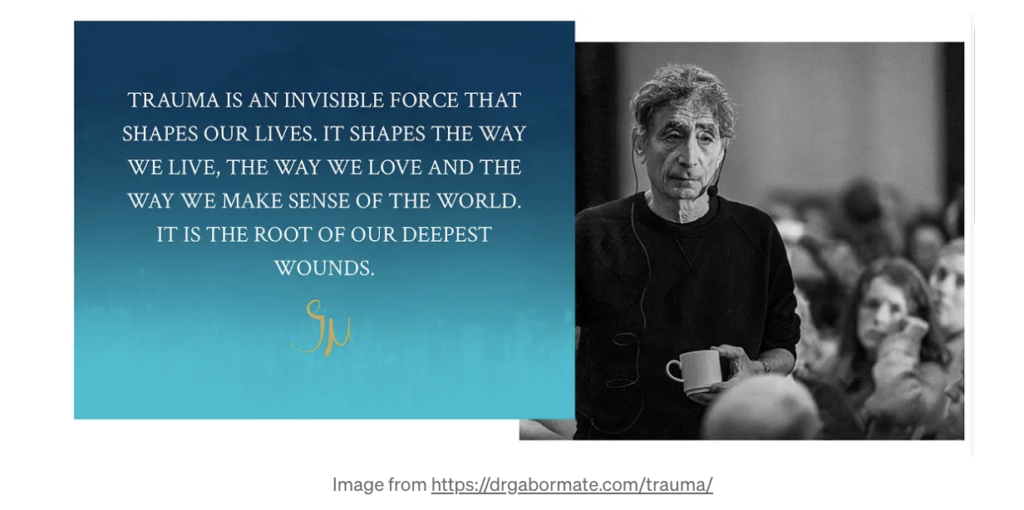
Trauma
A common thread in every homelessness situation — adults, teens, children — is trauma. It’s a little-understood devastating reality that impacts our every move. (For a comprehensive understanding of trauma, something we all experience, see Dr. Maté’s profoundly enlightening book, The Myth of Normal.)
One aspect of trauma we tend to overlook — as Dr. Maté points out in The Myth of Normal — is how it causes “an upsurge in chronic illness and general ill health.” He is clear not to stigmatize people in poverty as the only ones experiencing trauma as he describes trauma experienced by renowned individuals. As we apply lackluster efforts to addressing homelessness, often we overlook the connection between stress/trauma and health issues.
Emotional stress is a major cause of physical illness, from cancer to autoimmune conditions and many other chronic diseases. The brain and body systems that process emotions are intimately connected with the hormonal apparatus, the nervous system, and in particular the immune system. (Dr. Gabor Mate)
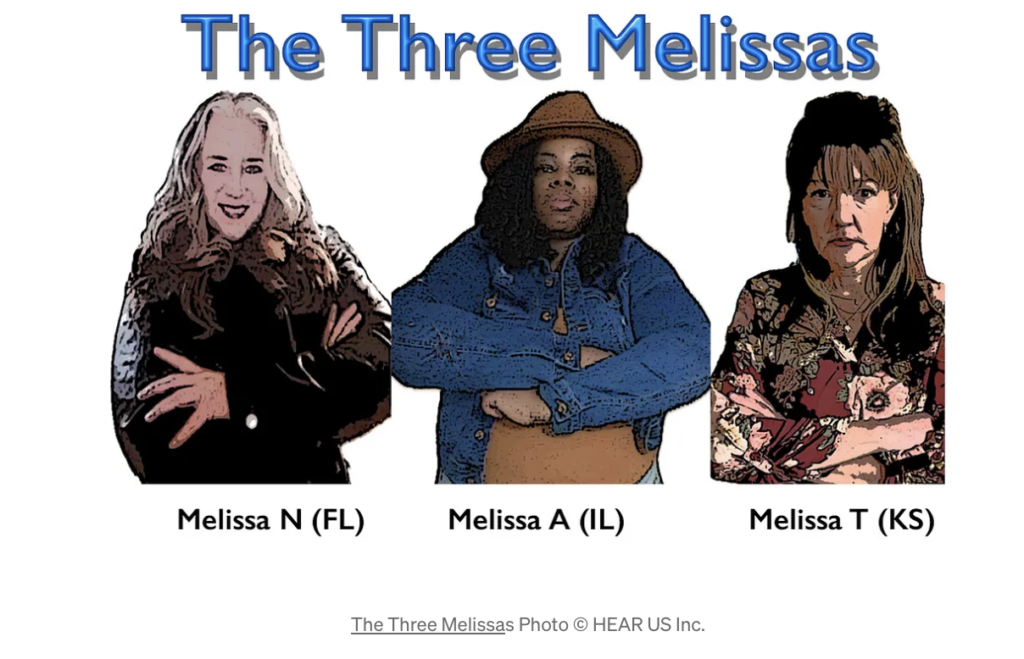
*Three Melissas — The Power of ‘Lived Experiences’
Which brings me to a strangely hopeful effort that I’m involved in.The Three Melissas Practical Guide to Surviving Family Homelessness (Making Bad a Little Better)is a unique book filled with helpful hints and observations by three moms named Melissa. I met each of them when they and their kids were in various homeless situations — Melissa A, with her 5 kids in a suburban Chicago hotel; Melissa N, with her 3 kids in a flimsy FEMA trailer in Florida; and Melissa T and her daughter in disabled man’s house a tiny Kansas town.
Besides their names, what each have in common — unwavering devotion to their kids and determination to “make bad better.” They’re more than willing to share their stories and their suggestions so families in similar situations can learn from their experiences.
My partner in this endeavor, Diana Bowman, brings a heap of expertise and understanding to this project. We have interviewed the Melissas and have compiled their wisdom into this little book (now in the editing process). We’ve included a touch of vital info for service providers, educators, lawmakers and the public who might happen to pick up this snappy little guide.
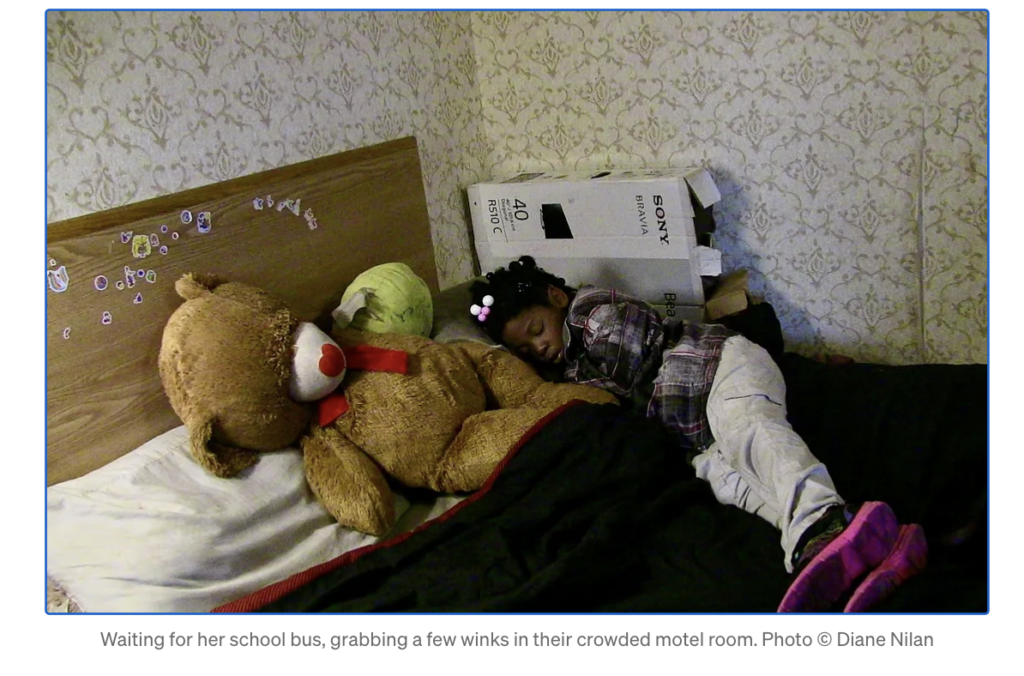
My Takeaway
I can’t help but fume about what these millions of moms are enduring. I was recently validated when Linda Villarosa reported in the New York Times about family homelessness often benignly referred to as “couch surfing.” She captured the desperation that the mom, Jackie, adeptly expressed. It boils down to the disregard of literally millions of people, many moms with kids, without housing and without help thanks to a confused federal definition.
When I recently visited “the Melissas,” they reiterated their support for this project. Key to their motivation is saving others from the pitfalls common to family homelessness. Our book will help. Proceeds from book sales will go to the Melissas.
What struck me is how close to a return to homelessness these gallant women are. They know it, and are doing what they can to circumvent the disaster, but it’s real.
In the four decades that I’ve worked in this field I have never seen things this bad for vulnerable families. Underlying this catastrophe — sleeplessness and trauma.
Ironically, those are probably the “easiest” fixes.
Diane Nilan is President of HEAR US Inc.,an organization that gives voice to families and youth experiencing homelessness. Nilan has devoted her life to advocating for and presenting the real face of homelessness in America, focussing on families and children. She has more than three decades of experience running shelters; advocating for improved state and federal policies; filming/producing award-winning documentaries. Her latest work is the book, Dismazed and Driven: My Look at Family Homelessness in America and The Three Melissas.

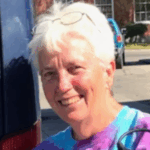
This article is so good because it describes so many aspects of homelessness, and more broadly, poverty. These are things that policy makers rarely talk about. They are ignorant or worse. Ultimately it is poverty that is at the root of homelessness. Billionaires are ripping off the American people’s wealth and leaving a larger portion of us poor than before. It’s looking like the Great Depression all over again for millions of Americans.